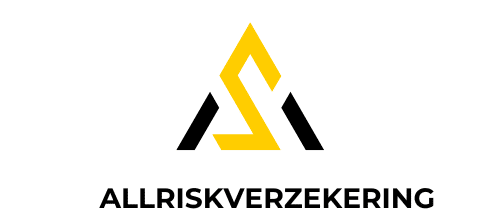Securing government grants is often a challenging hurdle for small UK-based environmental tech companies. Despite the competition, government grants can provide a significant boost to businesses, especially start-ups. They can help fund research and development projects, finance capital expenditure, or support job creation and training. In this article, you’ll learn ways to increase your chances of securing such grants.
Understanding the Grant Landscape
Before embarking on the journey to secure a grant, it’s crucial to understand the landscape. This means understanding the types of grants available and their specific criteria.
Also read : What Are the Implications of Next-Generation 6G Wireless on UK Businesses?
Types of Grants
Several types of grants are available for environmental tech companies in the UK. These include research and development grants, innovation grants, and energy efficiency grants. Research and development grants are suitable for businesses focused on creating new and innovative environmental technology. Innovation grants are designed to support companies that are working on novel ideas or solutions in the environmental sector. Lastly, energy efficiency grants cater to businesses promoting energy-saving techniques or renewable energy.
Eligibility Criteria
Each grant has specific eligibility criteria. For example, some grants are only available for businesses that are undertaking certain types of research or work in specific sectors. The business’s size, turnover, and number of employees may also affect eligibility. It’s crucial to thoroughly read through the criteria to ensure your business is eligible before applying.
Also to discover : What Are the Key Elements for a Brick-and-Mortar Business to Create a Seamless Online Shopping Experience?
Crafting a Compelling Application
The application is the first impression you make on the grant committee. It’s important to highlight your business’s strengths, goals, and the potential impact of your work.
Crafting Your Narrative
To begin with, articulate your business’s mission and goals clearly. Show how your project aligns with the objectives of the grant. Use clear, compelling language to describe what your company does, why it’s important, and how the grant will help you achieve your goals.
Outlining Your Project
Next, detail the project for which you’re seeking funding. Explain its objectives, expected outcomes, and how you plan to measure success. Be specific and realistic about your project timeline and budget. Also, demonstrate how the project aligns with the broader goals of your business.
Leveraging Professional Support
Seeking professional advice can significantly improve your chances of securing a grant. Consultancy services, grant-writing services, and professional networks can provide valuable insights and guidance.
Consultancy Services
Specialized consultancy services can help you navigate the grant landscape. They can advise on the most suitable grants for your business, help you understand the application process, and even support you in writing your application.
Grant-Writing Services
Professional grant writers have the expertise to craft persuasive applications. They understand what grant committees look for and can help tailor your application to meet these needs. Although it’s an added expense, hiring a grant writer could significantly increase your chances of success.
Engaging with the Grant Committee
Establishing a relationship with the grant committee can be beneficial. This can help you better understand their expectations, gain insight into the evaluation process, and improve your application.
Building Relationships
Engaging with the committee can provide useful feedback and insights. Attend grant workshops or seminars to network with committee members. This can provide an opportunity to introduce your business and project idea, and get valuable feedback before submitting your application.
Seeking Feedback
If your application is unsuccessful, don’t be disheartened. Instead, request feedback from the committee. This can provide insight into your application’s weaknesses and help you improve future applications.
The journey to securing a government grant can be challenging, but with a thorough understanding of the grant landscape, a compelling application, professional support, and a proactive engagement with the grant committee, small UK-based environmental tech companies can significantly improve their chances of success. The potential benefits, both financial and non-financial, can be transformative for your business. So, it’s certainly worth the effort.
Utilising Available Resources and Tools
Apart from seeking professional advice, small environmental tech companies can also take advantage of numerous resources and tools that are available to assist in the grant application process.
Research Tools
The internet is brimming with research tools that can be of great help. For instance, the UK government’s online portal provides comprehensive information about available grants and their specifications. This portal can be a significant starting point in identifying and learning about potential grants.
Additionally, sector-specific websites, such as those dedicated to environmental technologies, often publish grant opportunities and provide resources to help with applications. These platforms might include templates, sample applications, or even webinars and tutorials on how to write a successful grant application.
Online Networking Platforms
LinkedIn and other professional networking platforms can be notably beneficial. They provide an opportunity to connect with other businesses in the same industry who have successfully secured grants. This interaction can offer practical advice and tips. Furthermore, joining relevant online groups or forums can provide access to valuable discussions and insights into the grant application process.
Understanding The Evaluation Process
Having a clear understanding of how grant applications are evaluated can give businesses an edge. This can help tailor the application to meet the expectations of the evaluators.
Criteria-Based Evaluation
Grant applications are typically evaluated based on a set of predetermined criteria. This might include the quality of the proposed project, its alignment with the grant objectives, the potential for impact, and the capability of the business to deliver the project.
Understanding these criteria and structuring the application to clearly demonstrate how your project meets them can make a significant difference. For instance, if the grant prioritises innovative technology, emphasise how your project is innovative and provide evidence to support your claims.
Scoring Systems
Many grant schemes use a scoring system to assess applications. Understanding how this scoring system works can be beneficial. For instance, some elements of the application might carry more weight than others. Prioritising these high-scoring sections in your application can increase your overall score and chances of success.
Conclusion
Securing government grants can be a significant breakthrough for small UK-based environmental tech companies. It not only provides crucial financial support but also lends credibility to the business. However, the process can be intricate and competitive.
With careful research, a well-crafted application, effective use of available resources, understanding of the evaluation process, and proactive engagement with the grant committee, small businesses can improve their chances of securing these grants.
Remember, persistence is key. If your application is unsuccessful, seek feedback, learn from the experience, and keep applying. With determination and the right approach, securing a government grant is an achievable goal.
















